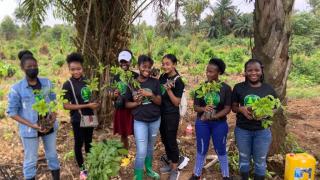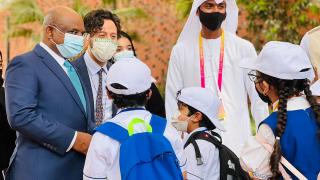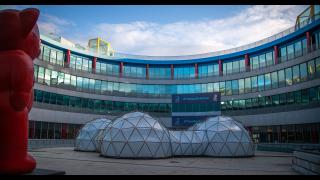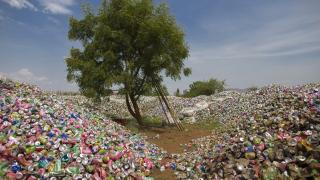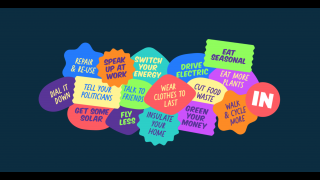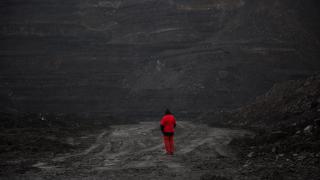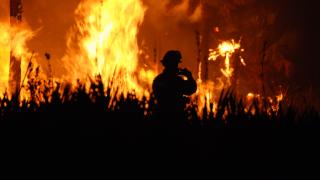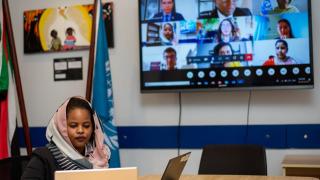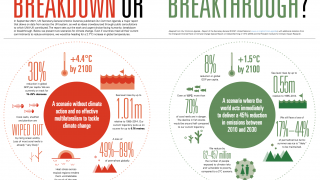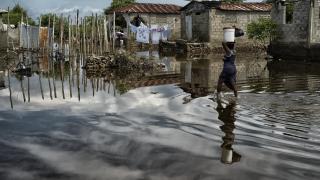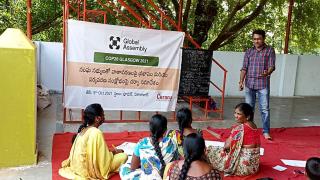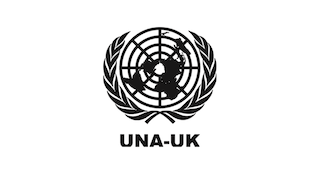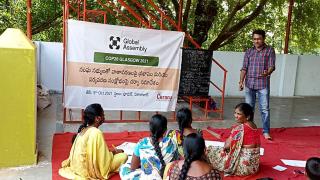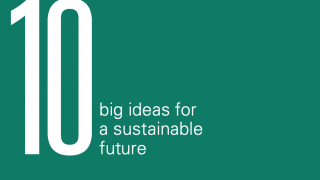
UN Secretary-General António Guterres has said: “We are waging a suicidal war against nature [and] risk crossing irreversible thresholds and accelerating crises that could take centuries or even millenniums to reverse.” His visionary report, Our Common Agenda, put forward a number of ideas on how we can protect our climate, our environment and our planet for all people – now and in the future. Here are 10.
1.
More ambitious climate plans, including no new coal after 2021, shifting fossil fuel subsidies to renewable energy and providing a package of support to developing countries. This includes delivering the target of $100 billion every year and allocating 50 per cent of climate finance for adaptation and resilience, as well as technological and capacity-building support.
2.
An international carbon price floor, as proposed by the International Monetary Fund; complementary measures to GDP that account for the environment; and verifiable targets for financial actors that shift their entire portfolio away from high-emission sectors to a climate resilient and net zero economy, along with timelines to implement their pledges.
3.
Universal adoption of the International Labour Organization Guidelines for a Just Transition towards Environmentally Sustainable Economies and Societies for All. All countries – and companies – should implement the guidelines as the minimum standard to ensure progress on decent work for all as well as on people-centred climate action.
4.
Biennial meetings of the G20, UN and international financial institutions to discuss inter alia, coordination on long-term and innovative financing, a Sustainable Development Goals ‘investment boost’, more flexible research and development incentives, and resolving long-standing weaknesses in the international debt architecture.
5.
An emergency platform that would be triggered automatically in global crises of sufficient scale and magnitude. The platform would bring together leaders and experts from different sectors, provide mechanisms for surge capacity, have focal points to engage with existing response arrangements, and identify ways to make the international system crisis-ready.
6.
UN Special Envoy for Future Generations to represent the interests of those yet to be born and support long-term thinking and foresight, including through a Futures Lab that would support future impact assessments and anticipatory decision-making, convene foresight and planning experts, and regularly report on megatrends and catastrophic risks.
7.
A Declaration on Future Generations. The interests of younger and future generations are increasingly being considered by national courts, particularly in the context of climate change and the environment. An international declaration could specify duties to succeeding generations and develop a mechanism to share good practices and monitor how governance systems address long-term challenges.
8.
A dedicated United Nations Youth Office to support the Envoy on Youth, lead high-level advocacy and facilitate coordination of youth matters within peace, sustainable development, humanitarian issues and human rights. The youth envoy will also prepare recommendations for more meaningful, diverse and effective youth engagement in UN decision-making processes.
9.
A Trusteeship Council for the global commons. Set up to support decolonisation, the Council suspended its operations in 1994. It could be repurposed as a multistakeholder body to tackle emerging challenges and act on behalf of future generations, issuing guidance on governance of the global commons, delivery of global public goods and managing global public risk.
10.
A high-level, multi- stakeholder “Summit of the Future” in 2023 to advance ideas for governance arrangements, with potential tracks including: management of global public goods and major risks, sustainable development and climate action beyond 2030, and future generations – as well as a new agenda for peace and a global digital compact.

